Iran Retaliates With Missile Strike on U.S.-Iraqi Military Bases. What’s Next?
Description
“This would eventually put the U.S. and the Iran path towards war.”
Here’s what National Iranian American Council Founder Trita Parsi, Center for a New American Security associate fellow Neil Bhatiya and Jacob Kirkegaard, senior fellow at the Peterson Institute for International Economics. say about the current U.S.-Iran tensions.
Iran fired more than a dozen missiles at U.S.-Iraqi airbases, a direct attack on American forces in the region that risks further action from President Donald Trump after a U.S. air strike killed top Iranian general Qassem Soleimani last week.
The Islamic Revolutionary Guard Corps claimed responsibility for the barrage, which the Pentagon said was launched from Iran. Fifteen missiles were fired, 10 of which hit the Ayn al-Asad base in western Iraq and another facility in Erbil, according to two U.S. officials. Another struck the Taji air base near Baghdad while four fell out of the sky.
Stocks dropped and oil rose on news of the Iranian strike, though crude later pared its gains. The big question is the extent of any U.S. casualties, because that is likely to influence the White House thinking on potential retaliation. For now it’s not clear if there were any fatalities and the Pentagon said the bases had already been on high alert.
Some sort of response had been expected to the killing of Soleimani, who ran Iran’s proxy operations across the Middle East and was close to the country’s leaders. While Tehran does not want outright war with the U.S., there was growing pressure at home to react. The balancing act was to do so without tipping things into a conflict that no-one has appetite for.
Supreme Leader Ayatollah Ali Khamenei spoke on state television and described the attack as a “crushing response.” He called again for the U.S. presence in the region to end, a sign that Tehran’s ultimate goal remains to push the U.S. military out of Iraq. Foreign Minister Mohammad Javad Zarif said on Twitter the government “concluded proportionate measures in self-defense” after the Soleimani strike. “We do not seek escalation or war, but will defend ourselves against any aggression,” Zarif wrote.
In Tehran the mood on Wednesday was cautious, with ordinary people taking to Twitter to voice their fears of a war.
President Donald Trump tweeted “All is well!” and “So far, so good!” while adding that battle damage assessments continued. He added he’ll make a statement Wednesday morning. Tensions between Iran and the U.S. have soared under Trump, who walked away from the Iranian nuclear deal agreed by his predecessor. Since then, Iran has warned repeatedly the restraints on its nuclear program will be removed.
Trump was joined in the White House Situation Room after the attack by officials including Vice President Mike Pence, Secretary of State Michael Pompeo, Joint Chiefs Chairman Army General Mark Milley and National Security Adviser Robert O’Brien.
One White House official, who spoke on condition of anonymity, said the early thinking was the missile strike was a perfunctory move that would let Iran retaliate without incurring a potentially devastating U.S. counter-assault.
Subscribe to our YouTube channel: https://bit.ly/2TwO8Gm
QUICKTAKE ON SOCIAL:
Follow QuickTake on Twitter: twitter.com/quicktake
Like QuickTake on Facebook: facebook.com/quicktake
Follow QuickTake on Instagram: instagram.com/quicktake
Subscribe to our newsletter: https://bit.ly/2FJ0oQZ
Email us at [email protected]
QuickTake by Bloomberg is a global news network delivering up-to-the-minute analysis on the biggest news, trends and ideas for a new generation of leaders.

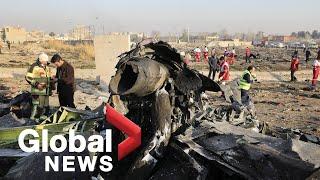
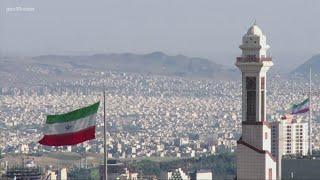
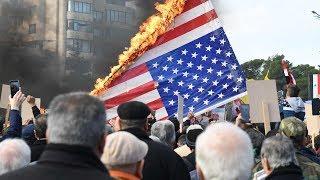

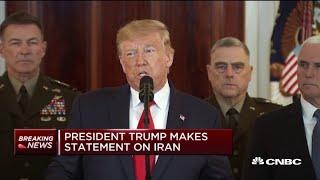

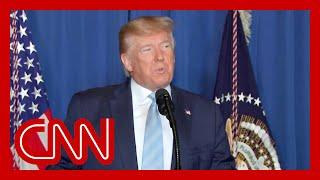

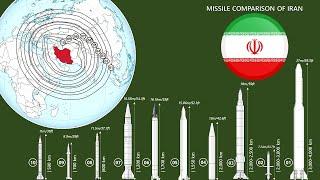
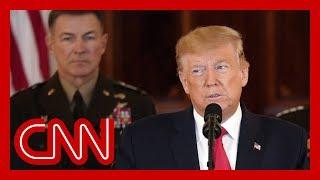

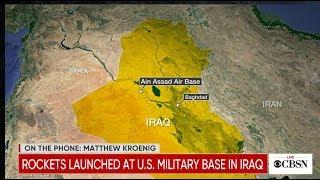
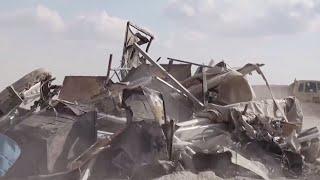
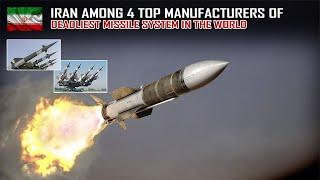
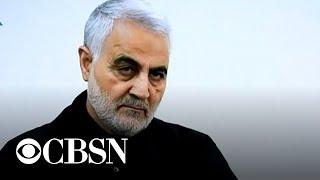





Comments